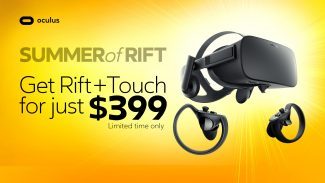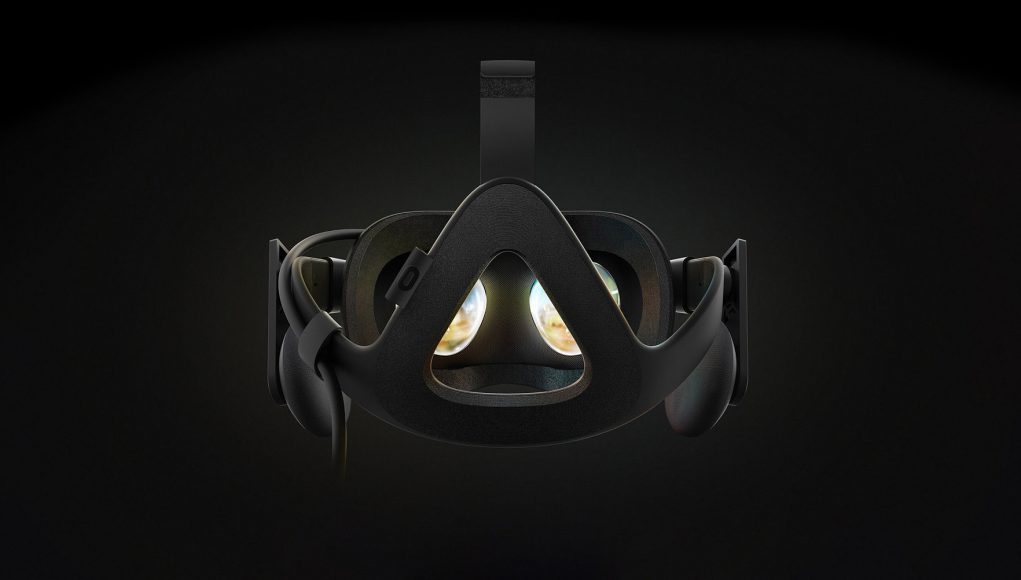The six week Oculus Rift sale has made tangible waves within the VR community with its ‘best-yet’ $400 price point. And while the new price is bringing more early adopters into the fold, mainstream adoption is still hindered in large part by the need for high-end computer hardware to power the headset.
Guest Article by Colin McMahon
McMahon is an Industry Analyst at Greenlight Insights, the global leader in virtual and augmented market intelligence.
For the next six weeks, the price for an Oculus Rift bundle (Oculus Rift headset with Oculus Touch controllers) is $400. After this, the price will rise to $500, still $100 less than the cost to get the headset and controllers before the sale, and $300 less than the cost at the start of 2017. Effectively, the sale has made the system half the price of the Rift’s leading rival, the HTC Vive. According to Greenlight Insights’ May 2017 industry forecasts, over five million PC-tethered VR headsets will be shipped by the end of 2017.

The new Oculus sale price has already been celebrated as a potential industry savior. However, the newly reduced post-sale price of the Rift bundle ($500) remains more expensive than a PSVR and roughly four times the cost of most premium mobile-based VR headsets. Furthermore, the total cost to the consumer begins to skyrocket when the cost of a VR Ready PC is factored in. Even on sale, the price of a Rift bundle and a VR Ready PC would still run upwards of $1,000 which is a blocker to market traction beyond early adopters. According to Greenlight Insights’ recent consumer study, this price is well outside the acceptable price range that most consumers are willing to pay for VR (only 15.1% of consumers are willing to spend above $400).
While price is the chief concern, the Rift bundle doesn’t solve one of the most important challenges that all PC VR headsets face: according to its annual survey on consumer attitudes and behavior toward virtual reality, Greenlight Insights has found the general public prioritizes ease-of-use when making a purchasing decision. In fact, since the first survey in 2015, Ease of Use has consistently been in the top three criteria selected by the survey’s respondents.
 Non-tech savvy shoppers will still balk at upgrading graphics cards and setting up the boundary system needed to properly run room-scale VR experiences. Oculus’ move is not likely to win over the general public or steal market share from mobile/console VR which still leads in ease-of-use. Instead, the Rift sale will likely have greatest appeal with the PC-owning tech savvy early adopters.
Non-tech savvy shoppers will still balk at upgrading graphics cards and setting up the boundary system needed to properly run room-scale VR experiences. Oculus’ move is not likely to win over the general public or steal market share from mobile/console VR which still leads in ease-of-use. Instead, the Rift sale will likely have greatest appeal with the PC-owning tech savvy early adopters.
As the battle for market share intensifies, Oculus hopes to increase its share of the PC VR hardware space now. But, as we look five and ten years out, the company that has a large installation base and engaged, daily users (as well as robust application developer support) will likely win, so the company will need to prioritize engagement as much as sales.
Given Oculus’ legal troubles and surprising absence in the now formidable location-based virtual reality entertainment (LBVRE) sector, the company’s new aggressive pricing strategy must be analyzed carefully and interpreted with caution. While the ‘Summer of Rift’ is here, don’t expect it to translate to mainstream traction just yet. That said, Oculus could still see an incremental increase in unit sales this year, and that is, at this point, significant.
For a full picture of how the VR industry is evolving, see the 2017 Virtual Reality Industry Report from Greenlight Insights and Road to VR.







